
Imagine you’d been born in 1899. Imagine living through the invention of the Model T, the jet aircraft, the liquid-fuelled rocket, and the computer chip. Now imagine looking back on all this in 1965 and writing, as though with a shrug, “How slow will we appear some day?”
It takes an uncommon turn of mind to survive decades this dizzying and then sum them up with perfect nonchalance—but a lot of the greatness of Anni Albers lay in her ability to stay undizzied and keep doing her thing, year after year. Not that she was afraid of innovation; her thing just happened to be weaving, an art form that, by her own calculation, had not changed in any fundamental way since the Stone Age.
Critics reach for a few keywords with Albers: “crisp,” “precise,” “mathematical.” I would like to propose “frightening.” Her work arouses the suspicion that beauty is simple and we’ve all been overthinking it. None of the shapes or colors in “Pasture” (1958), a smallish plot of mainly red and green threads, would be out of place on a roll of Christmas wrapping paper. The trick is that each component lingers long enough to make any change feel like an event; checkerboard red-and-green switches to green on-black, then green-on-black but with stutters of white and red. Patterns unfold horizontally, but every so often a twisted pair of vertical threads (it’s called a leno weave) slashes its way out of the grid. An invisible logic, mysterious but never precious, presides. Most visual art addresses whoever happens to be looking at it. “Pasture” stares straight through you, at some distant, tranquil future in which primordial beauty is the only kind left.
This story is from the April 22 - 29, 2024 (Double Issue) edition of The New Yorker.
Start your 7-day Magzter GOLD free trial to access thousands of curated premium stories, and 9,000+ magazines and newspapers.
Already a subscriber ? Sign In
This story is from the April 22 - 29, 2024 (Double Issue) edition of The New Yorker.
Start your 7-day Magzter GOLD free trial to access thousands of curated premium stories, and 9,000+ magazines and newspapers.
Already a subscriber? Sign In
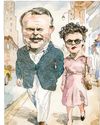
SUBJECT AND OBJECT
What happened when Lillian Ross profiled Ernest Hemingway.

ROYAL FLUSH
The fall of red.
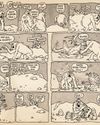
Roz Chast on George Booth's Cartoons
There's almost nothing I like more than a laughing fit. It is a non-brain response, like an orgasm or a sneeze.

CHUKA
I have always longed to be known, truly known, by another human being. Sometimes we live for years with yearnings that we cannot name.
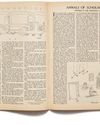
Rachel Aviv on Janet Malcolm's "Trouble in the Archives"
As Janet Malcolm worked on \"Trouble in the Archives,\" a two-part piece about prominent psychoanalysts who disagreed about Freud, she began a correspondence with Kurt Eissler, the head of the Sigmund Freud Archives.

PERSONAL HISTORY - A VISIT TO MADAM BEDI
I was estranged from my own mother, so a friend tried to lend me his.
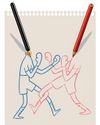
AMERICAN CHRONICLES - WAR OF WORDS
Editors, writers, and the making of a magazine.

LIVE FROM NEW YORK
A new docuseries commemorates fifty years of \"Saturday Night Live.\"
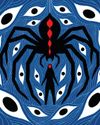
TANGLED WEB
An arachnophobe pays homage to the spider.

TROUBLE IN PARADISE
Mike White's mischievous morality plays.